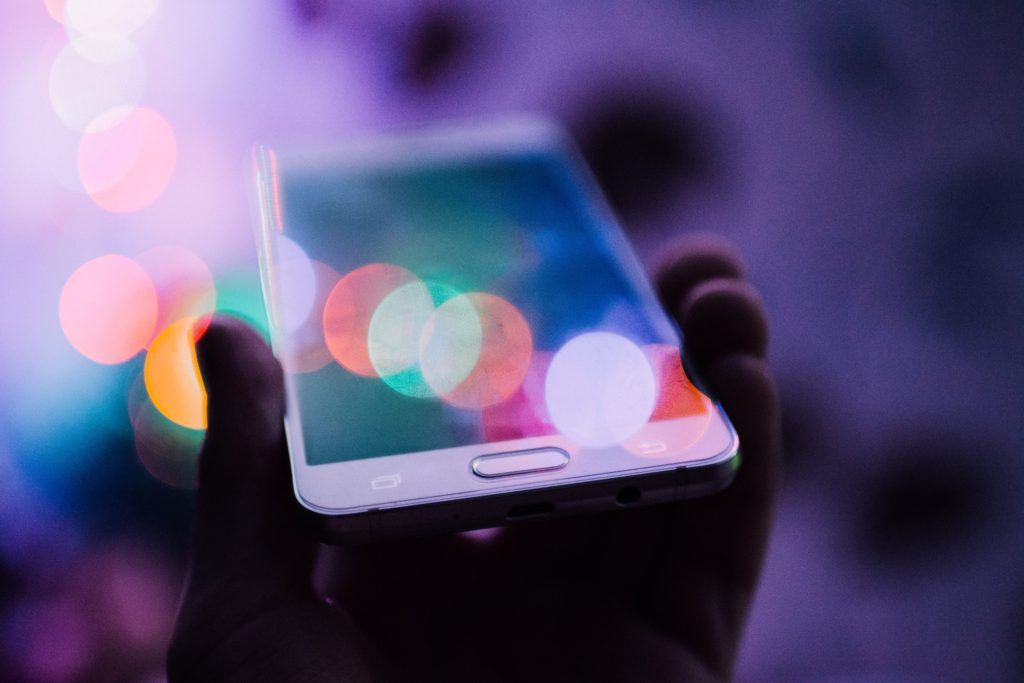
TikTok is a social network, yet it operates differently than any other social media app we know. It is most popularly known for teenagers’ lip syncing and dancing yet also hosts a wide range of public shareable content, such as comedic skits and viral challenges.[1] TikTok’s influence on pop culture is exploding with an increasing number of TikTok stars who have gained millions of followers in days.[2] Wherever I go now, I see children as young as eight making TikToks, be it on the New York City Subway platform or the street outside of their school. They are laughing and having pure and simple fun and that is the quintessential point of TikTok. The app makes it effortless to take part in it yet it can yield tremendous gain. It is not curated content like Instagram, it is not meant to be political or intelligent like Facebook or Twitter. It’s lighthearted, easy and yet it is not without controversy. For an app that has over 1.5 billion all time downloads and is all about dancing, comedy, viral videos and teen celebrities, the government is worried about how TikTok regulates its content and users.[3] The question is, should TikTok users be worried too?
TikTok presents various legal ramifications and implications that users on the app, as well as the general public, should be aware of. In short, like most other social media platforms, both the government and users are worried about the security of their private data, how the app protects minors, and content moderation.[4] Recently, I was showing the app to a family member, who was shocked that by downloading the app, I had willingly agreed to share my information with the Chinese government. Whether these fears are legitimate has yet to be proven, but the rumor is still widespread and common, and lawmakers are taking notice. United States Government officials are specifically worried about TikTok’s relationship with China on two fronts: the first is a worry of social media censorship; the second concerns the sharing of American citizens’ data with China.[5]
Concerns surrounding TikTok centered originally around the fact that a majority of its users are minors. Under COPPA (the Children’s Online Privacy Protection Act), [6] the Federal Trade Commission (FTC) can bring cases for statute violations and they did so against Musical.ly (TikTok’s former name). The company agreed to pay a record $5.7 million penalty for violating COPPA’s rules against collecting personal information from children under 13 without parental consent.[7]
Like most social media companies, TikTok also faced criticism over their regulation, or in some cases their lack thereof, of hate speech on their platforms. Some accounts on TikTok supported violent Neo-Nazi groups or called for a “Race War.” [8] In response, the company recently released new community guidelines that are more strict than other social media sites and restrict hate speech and depictions that may lead to violence.[9] For example, TikTok now bans “the depiction, trade, or promotion of firearms,” except in circumstances like when they are carried by officials like police officers, or “used in a safe and controlled environment such as a shooting range.”[10] In the battle between hate speech and free speech in America, TikTok has seemingly taken a stand.
On the other hand, TikTok’s regulation of content has faced the most amount of scrutiny specifically when TikTok regulates content that is critical of the Chinese government. For example, a US teenager uploaded a video discussing China’s oppression of its Uighur Muslim population. Not only was her video taken down, but she was suspended from the app.[11]
Given that this is a private company, TikTok can choose when, why, how and what content it regulates. ByteDance (the Chinese Company that owns TikTok) denies that the Chinese government orders it to censor its content and that the app’s content policies are led by a team in the United States and thus are not influenced by any government.[12] This statement though has not squashed fears about the reasons behind its content moderation, nor where data on the app is being sent to. Thus, given the overwhelming concerns about TikTok’s data sharing practices, the app’s ability to regulate its content may not be absolute.
The Committee on Foreign Investment in the United States reportedly opened a national security review of ByteDance’s acquisition of Musical.ly.[13] Spearheading the review, is Senator Marco Rubio who accused the app of censoring content that criticized the Chinese Government.[14] In addition, Senator Josh Hawley voiced concern that TikTok is being forced to send data to the Chinese government because of laws there that require companies to comply with intelligence operations.[15]
Others have expressed concerns about China potentially using TikTok to meddle with the upcoming national elections.[16] In response to these concerns, advocates for the economic bolstering of tech companies argue that these fears are irrational, extreme and simply a result of paranoia.[17] While some voice approval for this review, others worry about how a U.S. probe into their practices, can magnify negative associations and distrust with the app leading other countries to regulate the app, resulting in a steady decline in usership.[18]
These legal and social concerns are legitimate and real. The answer to whether or not you should be worried about the app itself boils down to two factors: 1) Your trust in social media companies and 2) how much care and emphasis you put on your own freedom of speech balanced against your opinions of censorship of data.
What makes TikTok qualitatively different from other social media apps is that most users on the app seem to not care about the potential national security ramifications or if their video gets removed for no reason whatsoever.[19] What they care about is the fun that the app produces and the ability to go viral overnight with no effort at all. [20] However, if the government is the only body that voices concern over TikTok’s terms of policy and practices, TikTok will continue in its practices. Rather, it can be a combination of public and government pressure that pushes a social media company to rethink their policies when it comes to data sharing and removal of questionable content. [21]
The government is worried about TikTok but it is fair to posit that people using TikTok would rather turn a blind eye, and hope that their video that reached 1 million views will not get removed.[22] Most likely, without a public outcry about TikTok’s practices, the company will continue to engage in questionable practices, while publishing reports stating that they are not linked to China and are doing their best to protect your data.[23] One should balance their beliefs about freedom of speech, economic openness and national security[24] as applied to TikTok and respond accordingly.
Tehila
Colman is a second-year law student at the Benjamin N. Cardozo School of law
where is a Staff Editor for the Cardozo Arts & Entertainment Law Journal. Tehila is interested in
constitutional law with a focus on First Amendment law and is currently
interning at McCue Sussmane Zapfel & Cohen P.C.
[1] Paige Leskin, Inside the rise of TikTok, the viral video-sharing app whose ties to China are raising concerns in the US, business insider (Jan 23, 2020, 12:54 PM), https://www.businessinsider.com/tiktok-app-online-website-video-sharing-2019-7.
[2] Paige Leskin, These are the 38 biggest stars on TikTok, the viral video app teens can’t get enough of, business insider(Feb 4, 2020, 1:33 PM), https://www.businessinsider.com/tiktok-most-popular-stars-gen-z-influencers-social-media-app-2019-6; Taylor Lorenz, Hype House and the Los Angeles TikTok Mansion Gold Rush, N.Y. TIMES (Jan 3, 2020), https://www.nytimes.com/2020/01/03/style/hype-house-los-angeles-tik-tok.html.
[3] Leskin, supra, note 1.
[4] Id.
[5]Jamie Condliffe,The Week In Tech: TikTok Is in Trouble, n.y. Times (Nov. 8, 2019), https://www.nytimes.com/2019/11/08/technology/tiktok-government.html.
[6] 15 U.S.C. §§ 6501–6506 (2018); 16 CFR § 312.9 (2019).
[7] Jolina C. Cuaresma, Consumer Protection and the Law § 13:16 (2019).
[8] Joseph Cox,TikTok Has a Nazi Problem, VICE (Dec. 18, 2018), https://www.vice.com/en_us/article/yw74gy/tiktok-neo-nazis-white-supremacy
[9] Louise Matsakis, New Rules, Who Dis: TikTok Overhauls Its Community Guidelines, WIRED (Jan. 08, 2020, 5:00 AM), https://www.wired.com/story/tiktok-overhauls-community-guidelines/.
[10] Id.
[11] Sara Morrison, TikTok is accused of censoring anti-Chinese government content again, VOX (Nov. 27, 2019, 7:10 PM), https://www.vox.com/recode/2019/11/27/20985795/tiktok-censorship-china-uighur-bytedance.
[12] Jack Nicas & Mike Isaac & Ana Swanson, TikTok Said to Be Under National Security Review, N.Y. TIMES (Nov. 1, 2019), https://www.nytimes.com/2019/11/01/technology/tiktok-national-security-review.html.
[13]The Associated Press, Reports: US launches review of China-owned video app TikTok (Nov. 01, 2019), https://apnews.com/3013456fe7504e139d57e8befb463902.
[14] Id.
[15] Id.
[16] David R. Hanke, TikTok national security problem: Don’t ignore the lessons of 2016, The Hill (Jan. 28, 2020, 2:30 PM), https://thehill.com/opinion/cybersecurity/480251-the-tiktok-national-security-problem-dont-ignore-the-lessons-of-2016.
[17] Jonathan Hillman, Pretending all Chinese companies are evil schemers will only hurt the U.S. economy, The Washington Post (Nov. 08, 2019, 11:35 AM), https://www.washingtonpost.com/outlook/pretending-all-chinese-companies-are-evil-schemers-will-only-hurt-the-us-economy/2019/11/08/b0d98798-00dc-11ea-9518-1e76abc088b6_story.html.
[18] Priyanka Boghan & Casey Egan & Xiuxi Zhu, US scrutiny of TikTok could curb global growth, S&P Global (Nov. 07, 2019), https://www.spglobal.com/marketintelligence/en/news-insights/trending/BQg3DxbEpLndDOS1Maz0mw2.
[19] Sameer Balaganur, Is TikTok Really A Security Risk, or is American being Paranoid? Analytics India Magazine (Dec. 2019), https://analyticsindiamag.com/is-tiktok-really-security-risk-or-america-being-paranoid/.
[20] Id.
[21] See Jesselyn Cook, Far Right Activists Are Taking Their Message to Gen Z on TikTok, HUFFPOST (Apr. 16, 2019), https://www.huffpost.com/entry/far-right-tiktok-gen-z_n_5cb63040e4b082aab08da0d3 (quoting Heidi Beirich at the Southern Poverty Law Center “The pressure to get hate speech and other violent stuff off platforms is entirely a result of either outside pressure, like bad PR, or activities that the platforms themselves have engaged in to try to reduce the amount of hate on their platforms”).
[22] Balaganur, supra, note 18.
[23] Louise Matsakis, TikTok’s First Transparency Report Doesn’t Tell the Full Story, Wired (Jan. 03, 2020), https://www.wired.com/story/tiktok-first-transparency-report/.
[24]Robert Williams, Reflections on TikTok and Data Privacy as National Security, LawFare (Nov. 15, 2019, 3:54 PM), https://www.lawfareblog.com/reflections-tiktok-and-data-privacy-national-security.



